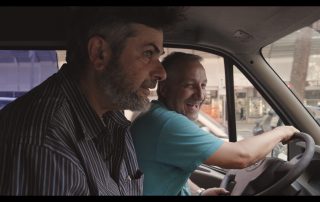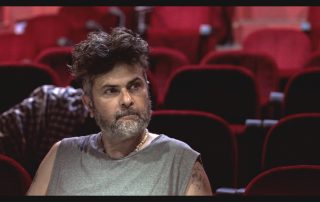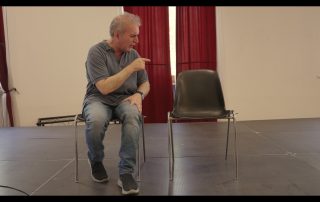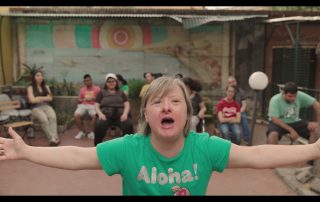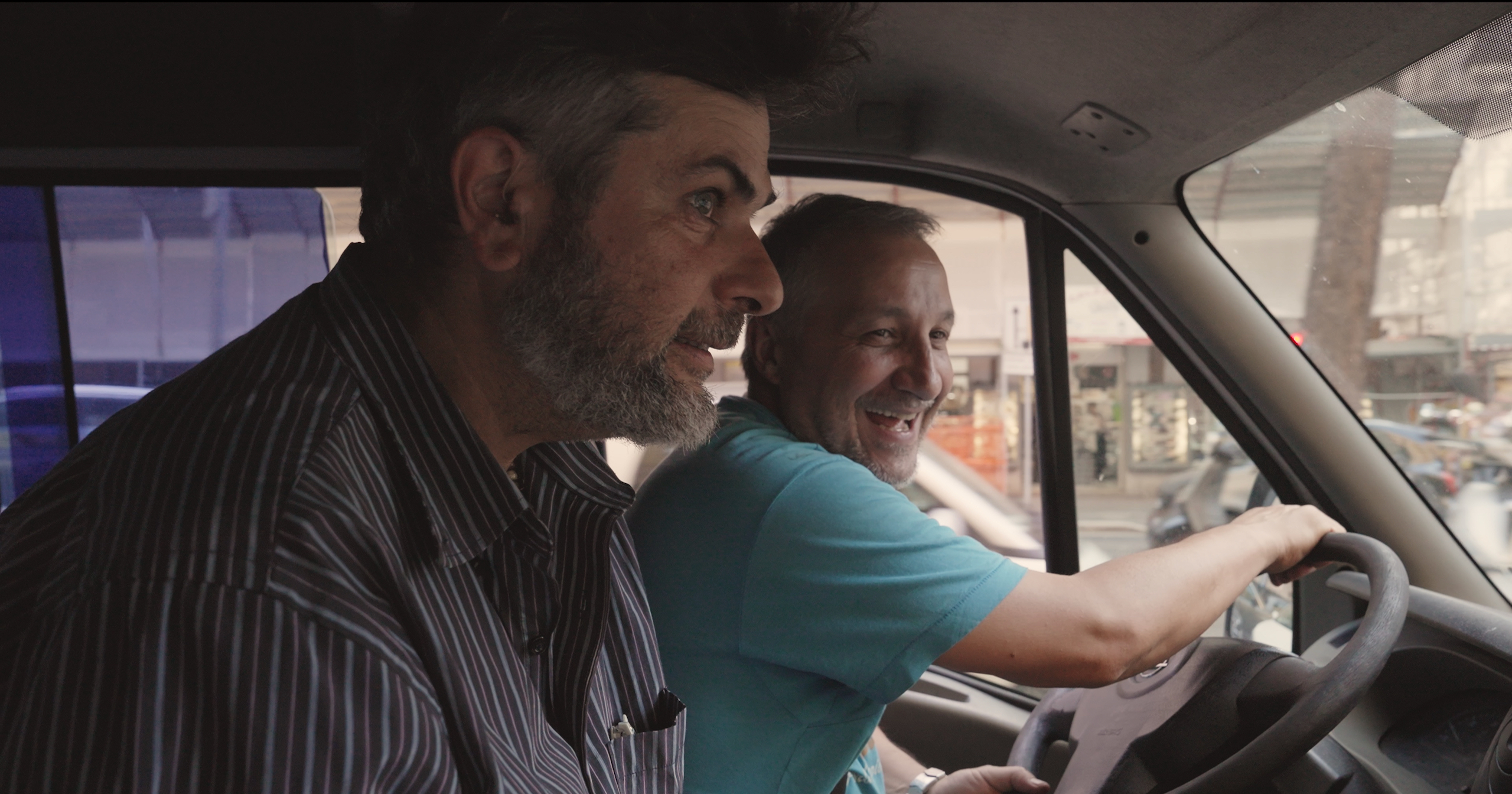
Venetian Nights 2025
INDIETRO COSÌ!FULL SPEED BACKWARD!
V.O. sub EN
Followed by Q&A
Reservation required on giornatedegliautori.com
V.O. sub EN
Public, all accreditations
cinematography
Antonio Morabito
editing
Stefano De Santis
Antonio Morabito
music
Alessandro Sgarito
sound
Silvia Moraes
(sound designer)
Antonio Morabito
(recorded live)
with
Stefano Romani
Irene Turati
Sandro Bussu
Carla Parsi
Gli operatori e gli utenti del Centro diurno La bottega delle idee – ASL RM2 Progetto laboratori per persone con disabilità – Municipio RM2
production
Vertigo Film
producer
Tony Campanozzi
contact
Vertigo Film
vertigofilmsrl@gmail.com
Italian press office
Nicoletta Gemmi
nicoletta.gemmi@gmail.com
Stefano is a social worker who puts on plays featuring the disabled and people with mental disorders. It’s rough going, at times. But the show must go on, right? Yes – by going backwards. The rehearsals with “actors” Elisabetta, Luigi, Alessandra, and Daniele are alternated with workshops where Barbara, Cinzia, Daniele, Mario, Marco, Rosaria, and Benedetta explore their dark sides through theater, bringing to the table their ideas, memories, autism and other syndromes; their imagination, their joys and anxieties and even psychoses, in a whirlwind of art and disabilities. They make progress moving backwards, guided by Stefano, who takes it all in, stimulating them, involving them, and showing he is less invulnerable than it first seemed. Full Speed Backward! is a story of marginalized lives, outliers, physically and mentally, and dark places, outside and within. But also creativity, resilience, and love of life.
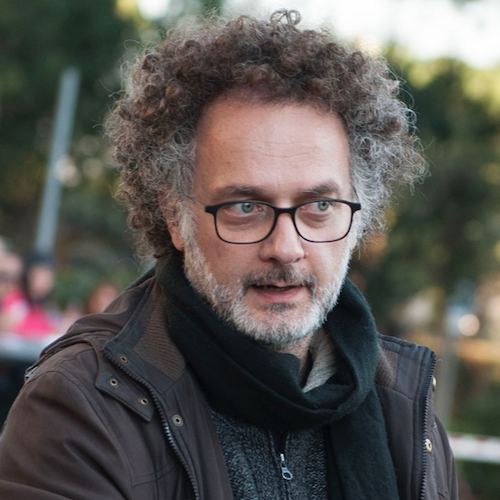
2025 Indietro così! (doc)
2018 Rimetti a noi i nostri debiti
2014 Il venditore di medicine
2012 Che cos’è un Manrico (doc)
2009 Non son l’uno per cento (doc)
2003 Cecilia
2000 Cecilia (short)
1998 Bac Blu (short)
1996 Il grande Zot (short)
1996 Ulna e ragno (short)
“Full Speed Backward! intimately observes a world shunted to the sidelines, that of disability and mental illness, which may be talked about and represented, yet its daily reality remains little known. Stefano, who experiences this world day in and day out, has sworn not to turn out the umpteenth Integrated Theater production. He is not a director and the cast has no actors; there are no auditions to do, nor can he pick and choose the participants, since they themselves have no choice, but are okayed for the program by the social services. What Stefano does want to create is theater with no capital ‘t’: because what should be the capital is the work that goes into getting the show ready, and the way it is put together. In the end, the real show, ironically, is the rehearsals themselves; the show’s opening night becomes a rehearsal as well, maybe even the first in a new series of steps to get it on stage. There is no linear direction forwards in the Theater of Going Backwards.” (Antonio Morabito)
Antonio Morabito studied directing in Rome and screenwriting in Paris. His short film, Ulna e ragno, was selected by Nanni Moretti for the Sacher Festival, while his short Cecilia was awarded at the Torino Film Festival and made the rounds of the leading international festivals, such as Clermont-Ferrand and the Berlinale Talent Campus. He also made two previous documentaries, Non son l’uno per cento and Che cos’è un Manrico. Amedeo Pagani produced Morabito’s feature films Il venditore di medicine, winner of fourteen awards at over fifty film festivals, and Rimetti a noi i nostri debiti, the closing film at the Warsaw Film Festival, and the first Italian film to be distributed by Netflix.

